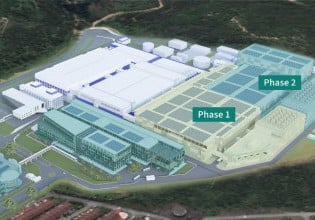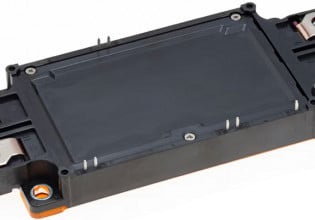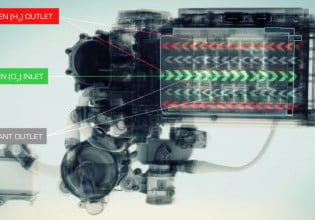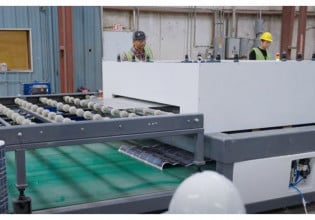Siemens and Inobat Partner on Customized Battery Cell Development
Siemens and R&D and battery cell manufacturer InoBat Auto have entered a new partnership.
As part of the collaboration, Inobat will digitize its entire value chain for electric vehicle battery production using Siemens’ electrical, automation, and digital technology portfolio. According to Siemens, the move will help InoBat improve its battery production capabilities and speed up time to market.
A computer rendering of the InoBat Gigafactory. Image used courtesy of Siemens/InoBat.
Siemens: Improving Batteries for EVs
As a company, Siemens needs no introduction. The firm was founded in 1847, and in its almost two hundred years of operation, has revolutionized many fields of technology.
Based on its most recent annual report (published in September 2020) the company generated revenue of €57.1 billion and net income of €4.2 billion and counted 293,000 employees worldwide.
Siemens has in the past decade worked on several projects to improve the efficiency of electric vehicles (EVs). The company’s efforts have been comprehensive, covering the design, development, and manufacturing of cell, module, and pack components for EVs.
“Improvements in battery production and of production machines for batteries flexibility, quality, efficiency, as well as time to market, can be achieved in numerous work steps,” reads the company’s website. “Many factors have to mesh and many challenges need to be met on the way to a better battery.”
InoBat: a Company Overview
Based in Bratislava, Slovakia, InoBat focuses on the production of battery cells.
The firm was founded in 2019 by Jozef Urban, Marian Bocek, and Marian Goga, and despite the pandemic, has so far raised 15 million Euros from CEZ Group and IPM Group.
InoBat operates with the long-term goal of serving the European market with new energy solutions.
Specifically, the firm works across three industry verticals, respectively electro-mobility, energy storage, and hydrogen.
The InoBat Gigafactory, planned for construction within the next four years in Voderady, Slovakia, will reportedly expand the company’s overall manufacturing capacity to 10GWh by 2024.
The manufacturing facilities will host a variety of products designed for individual machines and production lines including hardware, including Simatic Controllers, HMI screens, light stack, network topology, standardized machine interface, and energy monitoring.
Partnering on Customized Battery Cell Development
Through Siemens’ Xcelerator portfolio, InoBat will now be able to create a digital twin to advance the development of its premium customized electric vehicle batteries.
In particular, the company will have access to the Simcenter portfolio and NX software tool suites to cover the design and optimization of both the physical and chemical nature of its products. This, in turn, will allow Inobat to incorporate its proprietary chemistry output into Siemens’ cell design and simulation systems.
In addition, the companies are also planning to implement a full digital factory approach in all of the InoBat R&D and Gigafactory facilities. The goal will reportedly be achieved by combining InoBat’S Teamcenter, Opcenter, and MindSphere tools with Siemens’ automation product portfolio.
“The future of mobility includes electric vehicles as a key component, making battery manufacturers such as InoBat vital to its success,” explained Edwin Severijn from Siemens Digital Industries Software.
However, according to the executive, this is a highly competitive market, and battery manufacturers are required to create end-to-end processes to stay ahead of the curve.
“Using Siemens’ Xcelerator portfolio, InoBat can create accurate digital models to accelerate and optimize the planning, design, commissioning, and operation of its production lines and factories,” Severijn concluded.






